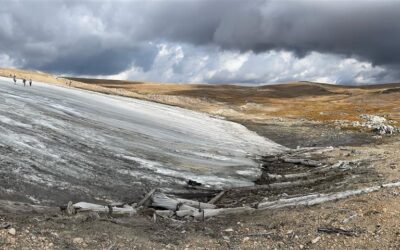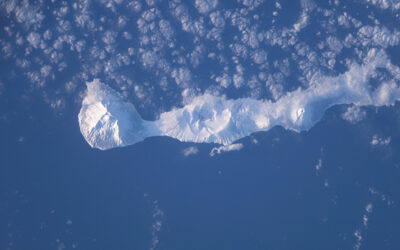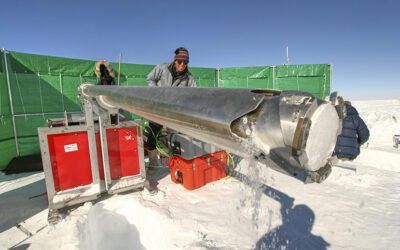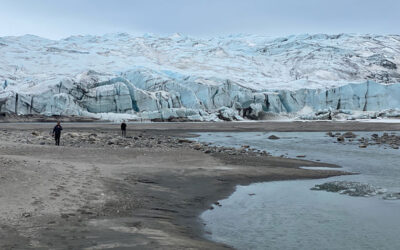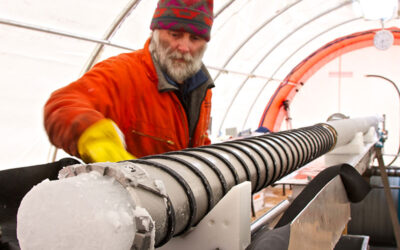DRI scientists Joe McConnell and Nathan Chellman co-authored a new study that examines a 6,000-year-old forest preserved in a Rocky Mountain ice patch. The research, which was led by the USGS and Montana State University, used the fossil wood to develop tree-ring based temperature estimates of the mid-Holocene period. The study can provide insight into the future elevational movement of forests under climate change, the scientists say.
Lead Pollution Likely Caused Widespread IQ Declines in Ancient Rome, New Study Finds
Lead exposure is responsible for a range of human health impacts, with even relatively low levels impacting the cognitive development of children. DRI scientists have previously used atmospheric pollution records preserved in Arctic ice cores to identify periods of lead pollution throughout the Roman Empire, and now new research expands on this finding to identify how this pollution may have affected the European population.
New Research Solves 200 Year Volcanic Mystery
DRI scientists Joe McConnell and Nathan Chellman are co-authors on a new study that sheds light on a historical mystery that has plagued historians and scientists alike for nearly two centuries. Using Arctic ice core records, the team identified the volcano responsible for an enormous eruption in 1831 that caused global cooling of around 1°C, leading to crop failures and famines around the world.
Annual Awards Presented to DRI Faculty and Staff at 2024 Celebration of Science
DRI’s annual awards and recognition ceremonies were held at our Reno and Las Vegas campuses in early October to honor scientists and staff members for their achievements. Along with the below awardees, several faculty and staff were recognized for their long-term service to the institute. DRI prides itself on fostering a fulfilling workplace that builds internal community and inspires scientific discovery.
Ancient Pollen Trapped in Greenland Ice Uncovers Changes in Canadian Forests Over 800 Years
The new study helps illuminate how changes in forest composition followed European settlement and natural changes in climate.
The First Assessment of Toxic Heavy Metal Pollution in the Southern Hemisphere Over the Last 2,000 Years
An international team of scientists led by DRI found evidence of Southern Hemisphere heavy metal pollution preserved in Antarctic ice cores from early Andean cultures and Spanish Colonial mining that predates the Industrial Revolution by centuries.
3000 years of carbon monoxide records show positive impact of global intervention in the 1980s
An international team of scientists have assembled the first complete record of carbon monoxide concentrations in the southern hemisphere, based on measurements of air.
Field Notes From DRI’s Ice Core Team in Greenland: A Story Map
A team of DRI scientists returned to Greenland in May 2023, where they are drilling a 150m long ice core to study interactions between ice chemistry and microbial life.
Field Notes From a DRI Research Team in Greenland: A Story Map
In May 2022, a team led by scientists from DRI in Reno, Nevada departed for Greenland, where they plan to collect a 440 meter-long ice core that will represent 4,000 years of Earth and human history.
Early Human Activities Impacted Earth’s Atmosphere More Than Previously Known
An international team of researchers led by Desert Research Institute analyzed ice core samples from Antarctica’s James Ross Island and found early human activity caused significant changes to the earth’s atmosphere. Their findings were just released in a new Nature journal article.
